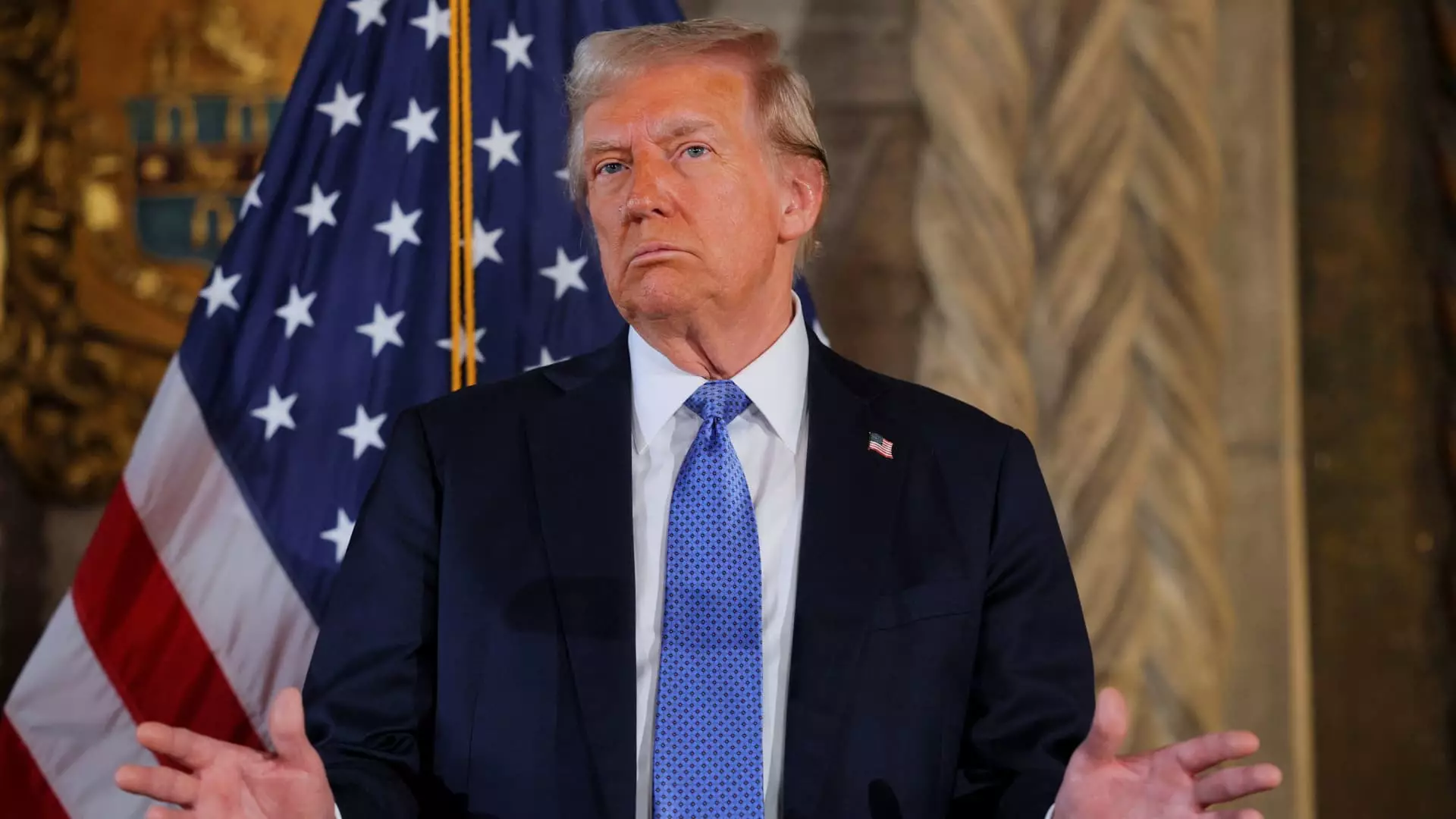The election of Donald Trump as the U.S. President has heralded a shift in international trade dynamics, particularly regarding relations with the European Union (EU). In recent statements, Trump has made it clear that he views trade as a transactional affair and expects tangible benefits in exchange for cooperation. His assertions regarding the EU’s trade deficit with the U.S. reveal a strategy that is both aggressive and unprecedented, raising questions about the future of transatlantic relations and the global economic landscape.
Trump’s pointed remarks that the EU must address its significant trade deficit with the United States—amounting to $131.3 billion in 2022—underscore the transactional nature of his administration’s trade philosophy. By insisting that the EU increase its purchases of U.S. oil and gas or face tariffs, Trump is placing energy at the forefront of trade negotiations. This demand serves not only as a means to rectify the trade imbalance but also highlights the strategic importance of energy resources in diplomatic relations.
It is important to note that Trump’s approach diverges from traditional forms of diplomacy that often emphasize collaboration and mutual benefit. Instead, he adopts a hardline stance, which some EU officials have described as unsurprising. The notion of using tariffs as a bargaining chip may provoke a defensive reaction from the EU and could potentially disrupt long-standing trade partnerships.
The mixed responses to Trump’s aggressive trade policy illustrate a broader tension between protectionism, as championed by his administration, and the EU’s commitment to maintaining open markets. Leaders like European Council President António Costa have reaffirmed the EU’s role in working with the U.S. on strengthening transatlantic ties, yet this commitment is reaching a crossroads. The pragmatic response from European leaders may involve balancing cooperation with the need to safeguard their own economic interests.
As former Italian Prime Minister Enrico Letta pointed out, Trump’s approach to trade intermingles energy issues with tariffs on goods. This conflation raises critical questions about the efficacy of such a strategy. Economic experts and analysts are already voicing concerns regarding potential inflationary pressures that could arise from these trade policies. High uncertainty prevails regarding how aggressively Trump may pursue these tariffs and the potential retaliation from the EU.
With Trump’s emphasis on a transactional approach to trade relationships, the EU faces a crucial test of both resolve and strategy. Letta suggests that the EU must be prepared to retaliate against any tariffs, arguing that the inherent asymmetry in the proposed deals necessitates a robust response. Europe’s past experiences with U.S. trade policies have shown that such conflicts can spiral into larger trade wars, ultimately benefiting neither party.
Moreover, the EU’s dependence on energy imports from the U.S. may complicate its response to Trump’s threats. European Commission President Ursula von der Leyen has already indicated a willingness to engage in negotiations regarding increased U.S. energy purchases, particularly in light of the EU’s urgent need to replace Russian liquefied natural gas following geopolitical tensions. This delicate balancing act will require both sides to navigate the complexities of their respective economic needs while responding to overtures of protectionism.
The evolving nature of U.S.-EU relations in light of Trump’s election emphasizes the need for strategic dialogue rather than unilateral threats. The current climate raises the stakes for both sides, compelling leaders to reassess their diplomatic approaches to trade. While Trump’s trade policies may initially yield positive results for the U.S. economy, the long-term consequences on the transatlantic relationship could be more nuanced and detrimental if not managed carefully.
The coming years may witness a redefined landscape of international trade, emphasizing the importance of bilateral negotiations. As each party assesses its priorities and strategies, it becomes clearer that sustainable economic relationships will require compromise, understanding, and an acknowledgment of the complexities inherent in global trade dynamics. The ongoing dialogues and negotiations between the U.S. and EU will ultimately shape the framework within which their future economic relationship operates.

